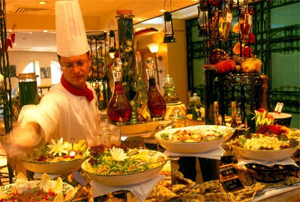  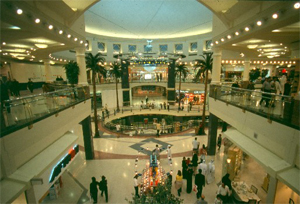 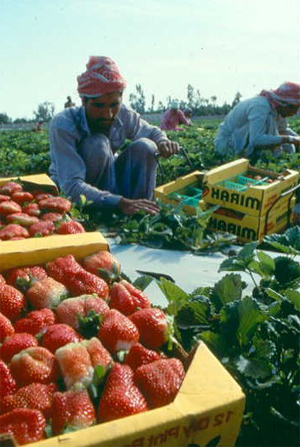  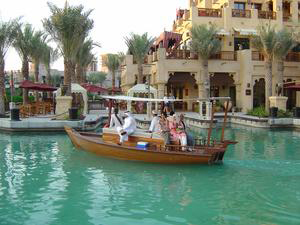 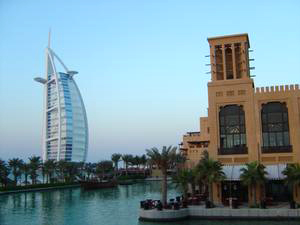 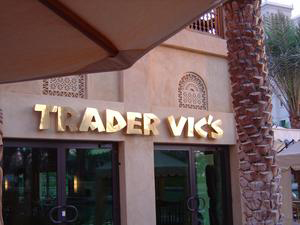 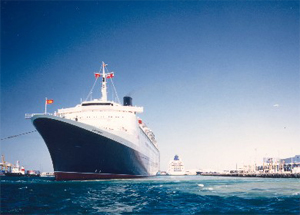   |
Tourist InfoLocal Time: Four hours ahead of GMTClimate: Sub tropical and arid with sunny blue skies most of the year. Rainfall is infrequent and irregular, occurring mostly in winter. Temperatures range from a low of about 10.5 degrees celsius in January, rising to 41 degrees in July. Language: The official language is Arabic, but English is widely spoken and understood. Currency: The monetary unit is the Dirham (AED or Dhs), which is divided into 100 fils and is pegged at 3.6 to US$ 1. Most international banks have branches in Dubai. Business hours: Government offices are open from 7:30 am to 2:30 pm Saturday through Wednesday and close on Thursdays and Fridays. Private Sector office hours vary, but are generally from 8:00 am / 9:00 am to 6:00 pm / 7:00 pm. Some companies work on a split shift concept where the offices close between 1:00 pm and 4:00 pm generally. Shopping malls are open from 10:00 am to 10:00 pm throughout the week except on Fridays when they open at 2:00 pm. Banking Hours: Banks are open from 8:00 am to 1:00 pm from Saturday to Wednesday and from 8:00 am to 12:00 noon on Thursdays. Some banks also open from 4:30 pm to 6:00 pm. Exchange houses are open from 8:30 am to 1:00 pm and from 4:30 pm to 8:30 pm daily. Credit Cards: All major credit cards are accepted in U.A.E. Visa is the official card of the Dubai Shopping Festival. Getting Here Dubai's location at the cross-roads of Europe, Asia and Africa makes for easy accessibility. London is seven hours away, Frankfurt six, Hong Kong eight and Nairobi four. Most European capitals and other major cities have direct flights to Dubai, many with a choice of operator. More than 80 airlines take advantage of Dubai's open skies policy, and operate to and from Dubai International Airport to more than 130 destinations, making it one of the world's busiest. Dubai is the home base of Emirates, the award-winning international airline of the UAE, which operates scheduled services to more than 45 destinations. A $540 million expansion programme is currently under way to offer passengers a state-of-the-art terminal. Dubai International Airport has comprehensive facilities for people with physical disabilities. Getting Around Taxis: Taxis are the most common way of getting around. Metered cabs from Dubai Transport Corporation, recognised by their cream colour, are efficient and have well-trained and courteous drivers. The fare is Dh3.00 for pick-up (Dh3.50 from 10.00pm to 6.00am), followed by Dh1.17 per kilometre. It is also possible to hire a taxi for a 12-hour period for a fixed fee of Dh500. Alternatively, Dubai Transport Corporation operates a fixed-fare minibus service to and from the other emirates. The fares of non-metered taxis are negotiated between driver and passenger, starting at a minimum of around Dh5 for short local journeys, while Dh10 to Dh15 is the rule of thumb if you cross the Creek from one side of the city to the other. Dubai Transport taxis also operate a service from the airport. The pick-up fee is Dh16 and the fare then accrues at Dh1.17 per kilometre. Most hotels operate transport for their guests. There are also several radio taxi companies which have cars on call and whose numbers are available at all hotels. Car-hire: Self-drive cars are available from car rental companies for visitors who have an international driving licence. Renters must produce their passport along with the valid licence. Visitors without an international driving licence may obtain a temporary local driving licence as long as they hold a valid national licence from one of the following countries: Germany, Spain, Belgium, Austria, Italy, Netherlands, Ireland, France, Switzerland, Greece, Turkey, UK, Poland, Portugal, Czech Republic, Slovakia, Cyprus, Luxembourg, Sweden, Denmark, Norway, Finland, Iceland, USA, Canada, Japan, South Korea, Singapore, Australia and New Zealand. The passport, valid national licence and two photographs are also required. Driving in the UAE is on the right-hand side. Roads and highways: Over the past two decades, Dubai has built an impressive network of first-class roads connecting all parts of the city and surrounding areas. There are two bridges and a tunnel linking the two main districts of Dubai and Deira on either side of the Creek. Roads to all major towns and villages are excellent and a multi-lane highway heads southwards from the city to Abu Dhabi. Water taxis: An interesting way to travel between Dubai and Deira is by water taxi across the Creek. The cost of this experience is 50 fils. Tipping Tipping practices are similar to most parts of the world. Some restaurants include service; otherwise 10 per cent is adequate. Weights and Measures Officially the metric system is followed, although British and American standard weights and measures are understood by most merchants. Local weights and measures are also used occasionally but seldom for international trade. Newspapers Gulf News, Khaleej Times, Emirates News and The Gulf Today are daily English-language newspapers. Arabic newspapers include Al-Bayan, Al-Ittihad and Al-Khaleej. Foreign newspapers and magazines, especially British and Asian, are readily available in hotel bookshops and supermarkets. Television Most leading hotels now receive international news and entertainment broadcast via satellite. Star TV, Orbit and Showtime are among the satellite networks which transmit a wide variety of programmes, including BBC World and CNN. Locally, there are four channels: Dubai 2, 10 and 41 which show Arabic programmes, and Dubai 33, which broadcasts in English. Emirates Dubai Television broadcasts through satellite in many parts of the world in Arabic and English. Reception from Abu Dhabi, Sharjah, Ajman, Qatar and Bahrain is usually possible and programme details are published in the local press. Radio The English-language service of UAE Radio Dubai broadcasts daily on 92MHz FM 24 hours a day. Channel 4FM also broadcasts 24 hours a day on 104.8MHz. Electricity The electricity supply in Dubai is 220/240 volts at 50 cycles. US-made appliances may need a transformer. Water Tap water is quite safe to drink but visitors usually prefer locally-bottled mineral water and this is generally served in hotels and restaurants. Medical Care Dubai has many well-equipped hospitals. The Dubai Department of Health and Medical Services runs Dubai, Rashid, Maktoum and Al Wasl hospitals. Dubai Hospital is one of the best medical centres in the Middle East, with specialised clinics; Al Wasl is a specialised maternity and gynaecology hospital. The department also operates a number of out-patient clinics, of which one is situated in Jebel Ali. In addition, there are a number of well-equipped private hospitals with in- and out-patient facilities. Telephones Telecommunications are excellent, both within the UAE and with the outside world. Telephone calls within Dubai city are free. Direct dialling is available to most countries. Facilities for the Handicapped An increasing number of public areas now have access and facilities for people with disabilities. |